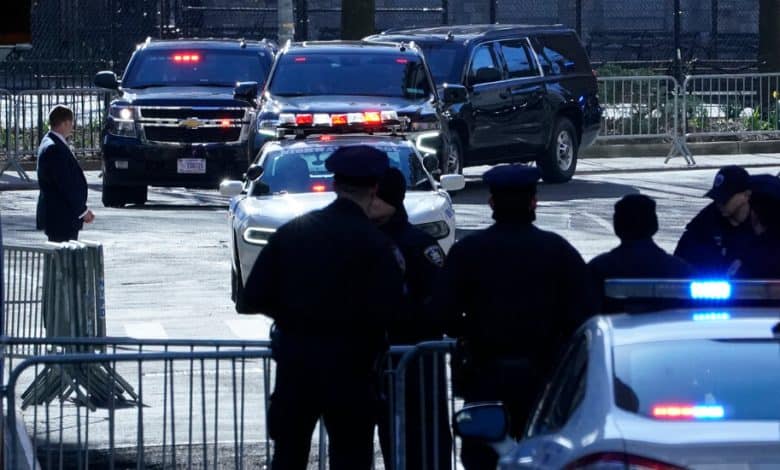Judge Won’t Delay Trump’s Criminal Trial to Wait for Immunity Ruling

The judge overseeing Donald J. Trump’s criminal case in Manhattan rejected his last-ditch bid to delay a trial beyond April 15, removing one of the final obstacles to the first prosecution of a former American president.
Mr. Trump had asked the judge to delay the trial until after the Supreme Court rules on whether he is immune from prosecution on charges involving official acts he took while president, an issue that arose in another of his criminal cases. The Supreme Court is expected to hear arguments on that issue this month but might not rule until June.
The judge in the Manhattan case, Juan M. Merchan, ruled that the trial did not need to wait for the Supreme Court. He denied Mr. Trump’s effort as “untimely,” ruling that he failed to request the delay by a legal deadline.
Mr. Trump’s delay effort was his latest bid to push back his four criminal cases, which are unfolding against the backdrop of his campaign to regain the White House. If Mr. Trump can stall the cases until Election Day, and he wins the presidency, they would likely grind to a halt.
Some of his tactics have paid off. In Florida, where Mr. Trump is accused of mishandling classified documents, a Trump-appointed judge has yet to finalize a trial date. And in Washington, D.C., where a federal special counsel has accused Mr. Trump of plotting to overturn the 2020 election, the Supreme Court has paused the trial while it considers the immunity issue.
In the Manhattan case, Mr. Trump secured a three-week delay, from late March to mid-April, after new investigative records emerged. But Mr. Trump wanted to push back the trial further. His lawyers sought a 90-day delay, or an outright dismissal of the case, blaming prosecutorial misconduct for the last-minute cache of documents.
That accusation carried little weight with Justice Merchan, who recently confirmed the April 15 start date and rebuked Mr. Trump’s legal team.
And the effort to drag out the Manhattan case until June was particularly far-fetched. At a hearing in February, Justice Merchan argued that, “The issue of the state proceedings, I don’t believe is for the Supreme Court.”
The Manhattan case stems from a hush-money deal struck with a porn star, Stormy Daniels, in the final days of the 2016 campaign. In a 34-count indictment last year, the Manhattan district attorney accused Mr. Trump of falsifying business records related to the payoff.
Mr. Trump, the presumptive Republican nominee for president, has denied the affair and the charges, which he claims are politically motivated.
